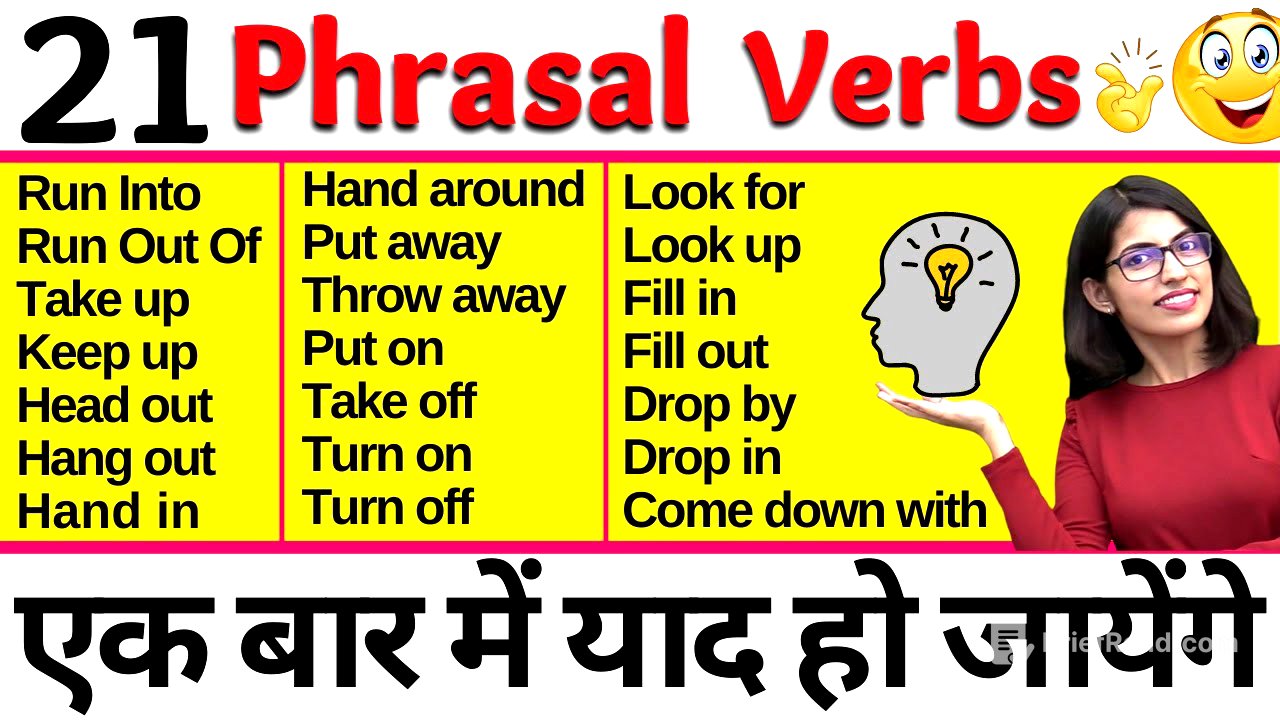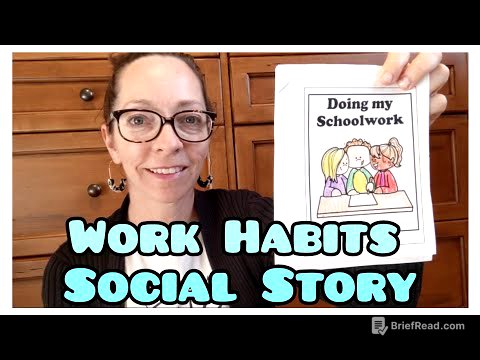TLDR;
This video by English Connection focuses on teaching advanced English speakers how to use phrasal verbs effectively. It emphasizes understanding the nuances between similar phrasal verbs through comparison and situational examples. The video covers pairs like "run into" vs. "run out of," "take up" vs. "stick to," and many others, providing clear explanations and practical usage scenarios. Additionally, the video encourages viewers to join the Telegram group for early video notifications and a chance to win a Zoom class with the instructor upon reaching one million subscribers.
- Focus on phrasal verbs for advanced English.
- Comparison and situational examples for better understanding.
- Telegram group benefits: early notifications and Zoom class opportunity.
Introduction [0:00]
The video introduces a lesson on phrasal verbs, essential for advanced English speakers. The instructor highlights the importance of understanding the subtle differences between similar phrasal verbs. The approach involves comparing phrasal verbs and providing situational conversations to illustrate their correct usage.
Telegram Group Announcement [0:58]
The instructor announces that the channel is nearing one million subscribers and expresses gratitude to the viewers for their support. As a thank you, the instructor encourages viewers to join the Telegram group for early access to video notifications. Upon reaching one million subscribers, ten lucky members from the Telegram group will be selected for a Zoom class with the instructor.
Run Into vs. Run Out Of [2:30]
The video explains the difference between "run into" and "run out of." "Run into" means meeting someone by chance, without planning. For example, "Have you seen Meera recently? Yes, I ran into her in the supermarket yesterday." "Run out of" means something coming to an end, such as supplies. For example, "We ran out of salt."
Take Up vs. Stick To [4:23]
The video clarifies the meanings of "take up" and "stick to." "Take up" means to start doing something new. "Stick to" means to continue doing something. For example, "I have taken up working out" and "Stick to the yoga, it is good for you".
Hang Out vs. Hand In [5:39]
The video explains the difference between "hang out" and "hand in." "Hang out" means to spend time with someone. For example, "On Saturday, my friend and I are going to hang out." "Hand in" means to submit something to an authority. For example, "I will hand in my resignation."
Take Out vs. Put On [7:36]
The video clarifies the meanings of "take out" and "put on." "Take out" means to remove something from a place. "Put on" means to wear something. For example, "They were taking out the mangoes" and "Put on the jacket, I am feeling cold".
Turn On vs. Turn Off [9:21]
The video explains the difference between "turn on" and "turn off." These phrasal verbs are used for electrical devices. "Turn on" means to switch on an electrical device. "Turn off" means to switch off an electrical device. For example, "Why did you turn on the TV?" and "Turn off the TV, it's time to sleep."
Look For [9:57]
The video explains the meaning of "look for". "Look for" means searching for a person or object or information. For example, "I searched for you the whole day" and "I want to know the meaning of the word, I will look for it on the internet".
Come Down With [11:53]
The video explains the meaning of "come down with". "Come down with" means to start getting sick. For example, "I think I am coming down with a cold".
Throw [12:22]
The video explains the meaning of "throw". "Throw" means to host a party. For example, "I am going to throw a birthday party for my brother".
Fill Out vs. Fill In [13:20]
The video clarifies the meanings of "fill out" and "fill in." Both are used for providing information, but "fill out" is generally used for forms and paperwork. The instructor notes a difference in usage between American and British English.
Drop By vs. Drop In [14:42]
The video explains that "drop by" and "drop in" have the same meaning: to visit someone briefly. For example, "I wanted to drop by and meet you for a while."
Conclusion [15:43]
The instructor encourages viewers to use the phrasal verbs they have learned and to share the video with friends and family. The video reiterates the invitation to join the Telegram group for a chance to win a Zoom class upon reaching one million subscribers. The instructor also asks for suggestions on what else they can do for their subscribers in the comment section.









